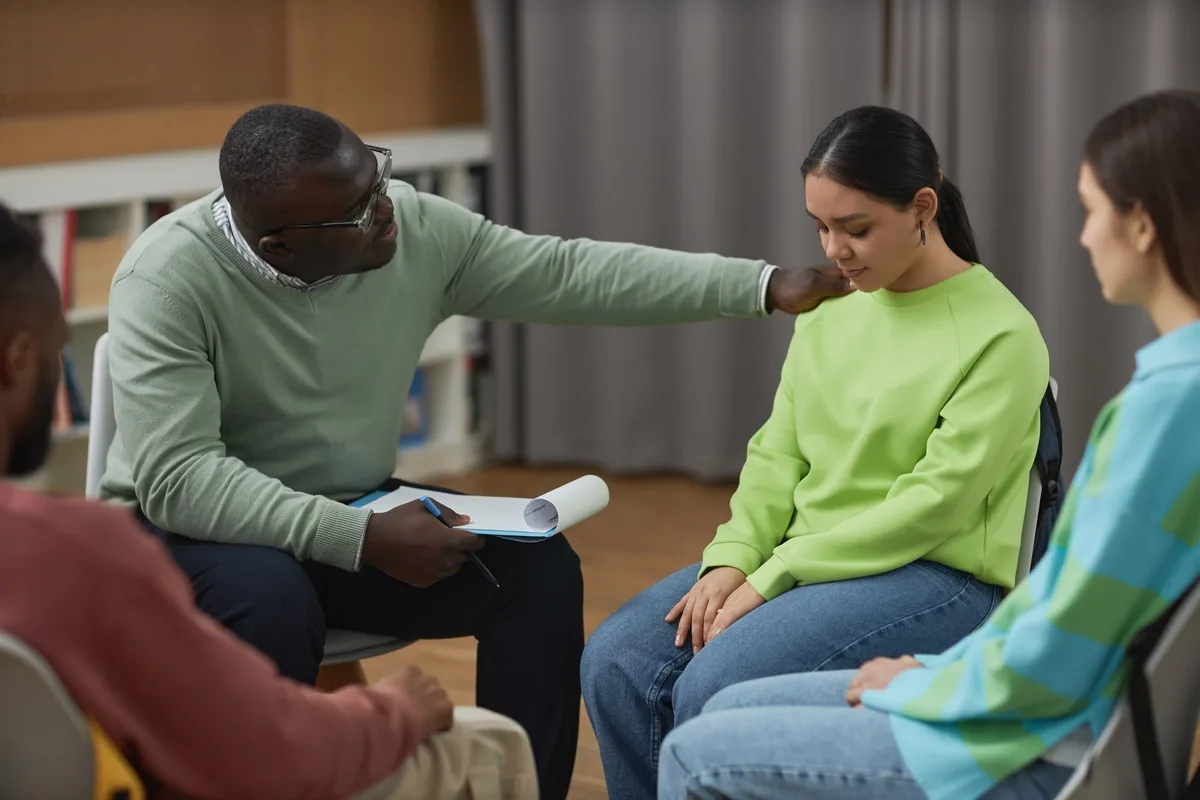24/7 Helpline:
(866) 899-111424/7 Helpline:
(866) 899-1114
Learn more about PTSD Rehab centers in Boardman
PTSD Rehab in Other Cities

Other Insurance Options

Health Net

AllWell

American Behavioral

Access to Recovery (ATR) Voucher

Sutter

Meritain

Excellus

Oxford

Premera

Self-pay options

Sliding scale payment assistance

Ceridian

Lucent

Molina Healthcare

EmblemHealth

UMR

MHNNet Behavioral Health

UnitedHealth Group

Highmark

Aetna

Sperohealth
Sperohealth is a private rehab located in Boardman, Ohio. Sperohealth specializes in the treatment o...

PsyCare – Boardman Clinic
PsyCare – Boardman Clinic is a private rehab located in Boardman, Ohio. PsyCare – Boardman Clinic sp...

Travco Behavioral Health
Travco Behavioral Health offers outpatient services for people struggling with substance abuse or me...

Community Counseling Solutions
Community Counseling Solutions offers outpatient services for those individuals dealing with mental ...


















Community Counseling Solutions – Lakeview Heights
Community Counseling Solutions - Lakeview Heights is a residential treatment program for individuals...









